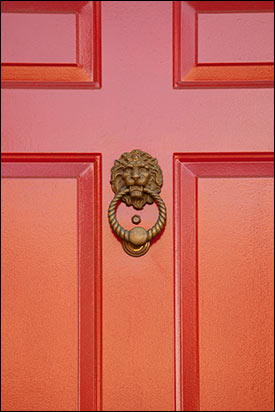View from the outside: Boutique firms knocking on the door for in-house work
By: Jane Pribek//September 18, 2012//
View from the outside: Boutique firms knocking on the door for in-house work
By: Jane Pribek//September 18, 2012//
 When the dot.com bubble burst, Jon Levitt, the in-house counsel for a tech company, realized he probably would lose his job.
When the dot.com bubble burst, Jon Levitt, the in-house counsel for a tech company, realized he probably would lose his job.
So Levitt sought advice from a friend, Bill Stone.
Stone, a former in-house attorney, already had felt the effects of the burst bubble. He’d been vice president of a software company that had been sold and liquidated. His job was eliminated in the transaction, and he was on severance.
The two knew that new companies would continue to sprout and that there were plenty of existing enterprises, both of which needed legal services but had very tight budgets.
They decided to serve them by forming a boutique law firm offering outsourced general counsel services. That was 2002.
Now, their firm, Boston-based Outside GC LLC, has grown to 30 attorneys in six states.
Stone and Levitt weren’t alone in anticipating the needs of companies.
In Manitowoc, attorney Andrew Steimle decided in 2000 to offer outsourced general counsel services not long after he’d started a firm with Michelle Birschbach. Both had practiced business law at a big firm in Milwaukee.
Now, Steimle spends about half of his time providing outside general counsel services, and Birschbach spends about a quarter of her practice on similar work.
Attorney Kent Larson considers himself a pioneer in providing outsourced general counsel. He created The General Counsel Ltd. in 1985.
The St. Paul, Minn., attorney had been working inhouse in mergers and acquisitions. He often became the newly acquired business’s in-house general counsel.
“It occurred to me one day,” Larson said, “that there must be many more companies just like the ones we’re acquiring: big enough to have some kind of ongoing legal need, but not big enough to afford a full-time, in-house counsel.
“I thought maybe there was an opportunity to give them the same kind of benefits of a staff lawyer that bigger companies have.”
So he went solo. Now, the firm has seven Twin Cities-based lawyers and is looking to expand outside the metro area and into Wisconsin.
Less overhead, lower fees
Wisconsin’s large and medium-sized firms all offer outside general counsel legal services, Steimle said. That’s nothing new.
What distinguishes the outside general counsel firms is they are boutiques providing similar services, but with much lower overhead and much lower fees.
Larson said he helps clients avoid problems, rather than arriving after the fact, which is often the case when a business hires an outside lawyer.
“Our job is to be like a really good utility infielder,” he said, “but also to know what our limitations are and where to get the best expertise at the best price.”
Steimle said when a company hires a typical firm, it could be for a discrete representation or project. The boutiques, he said, seek to form long relationships, integrating business strategy with legal advice.
“An effective outside general counsel is more than just somebody who reviews contracts and negotiates deals from time to time,” Steimle said. “He or she becomes a trusted business advisor as well.”
Another differing facto, Steimle said, is non-boutique lawyers often caution why a deal shouldn’t be done.
“But we know that business owners and executives take calculated risks,” he said. “Legal issues are a factor, but there may be other, overriding reasons why the legal issues are less important than some other strategic considerations.
“We get that. We run a business, too.”
Steimle said that with just two lawyers in his firm, there’s greater flexibility to offer clients alternative fee arrangements, and nothing has to be run by a compensation committee.
Working onsite in clients’ offices keeps costs down. Twenty-seven years after starting the firm, Larson said, he still sees no need for a brick-and-mortar office.
Steimle and Birschbach have an office, but often travel to clients.
Stone said the majority of Outside GC’s lawyers work from home offices and onsite.
The pros and cons of boutiques
The boutique firm owners anticipate growth and say they’re on the front end of a trend.
Larson said time has proven his firm’s business model works.
“It’s been a pretty good, flexible model that’s allowed for growth and changing with the times,” he said. “And I think it’s a very compelling model going forward.”
But it’s not for everyone.
“You have to have the right mentality, and you have to be willing to really invest in the client to create a partnership,” Steimle said. “That means spending lots of unbillable time with them, to really understand what their short-, intermediate- and long-term goals are.”
Boutiques also require attorneys be entrepreneurial and risk-tolerant, just like the clients.
“There’s an old saw about the three kinds of attorneys in the firm: the finders, the minders and the grinders,” Larson said. “In this kind of firm, you have to be all of the above.”
It’s not for newly minted lawyers because companies tend to want attorneys with experience and who bring networks when referrals are necessary, Larson said. And financial flexibility helps to tolerate sporadic work and income initially.
“It’s a little risky,” Stone said. “You’re not an employee, and in-house counsel can get used to getting a paycheck every two weeks.
“It’s daunting, but also very rewarding. Frankly, it’s fun to act as de facto general counsel to more than one company and with different people. There’s a lot of variety. Lawyers give that up when they go in-house.”
And that experience can make someone a better lawyer, Larson said.
“If you have a diverse clientele where you get to be part of the fabric of a handful of companies, you start seeing best practices,” he said. “You learn things from one client that can be useful elsewhere.
“When you work as an in-house lawyer for just one company, you get used to the way they do it. But maybe there are other, better ways to do it.”
Legal News
- Former Trump staffer who said to ‘fan the flame’ after 2020 loss hired to lead Wisconsin GOP
- Gov. Evers appoints David Casey to Serve as DOR Secretary
- FBI launches criminal investigation into Key Bridge collapse
- Man charged in slaying after woman’s leg found at Milwaukee-area park
- Minnesota man guilty in fatal stabbing of teen on Wisconsin river, jury finds
- Wisconsin teen sentenced in bonfire explosion that burned at least 17
- Wisconsin man who broke into home, ate victim’s chicken, slept in victim’s bed, receives prison and jail sentences
- Judge refuses to dismiss Hunter Biden’s gun case
- House passes reauthorization of key US surveillance program after days of upheaval over changes
- Milwaukee Police officer traveling to Georgia training retires before facing discipline
- Evers to ask legislature to approve largest increase in state support for UW System in two decades
- 7th Circuit Court of Appeals proposes new rules
WLJ People
- Power 30 Personal Injury Attorneys – Russell Nicolet
- Power 30 Personal Injury Attorneys – Benjamin Nicolet
- Power 30 Personal Injury Attorneys – Dustin T. Woehl
- Power 30 Personal Injury Attorneys – Katherine Metzger
- Power 30 Personal Injury Attorneys – Joseph Ryan
- Power 30 Personal Injury Attorneys – James M. Ryan
- Power 30 Personal Injury Attorneys – Dana Wachs
- Power 30 Personal Injury Attorneys – Mark L. Thomsen
- Power 30 Personal Injury Attorneys – Matthew Lein
- Power 30 Personal Injury Attorneys – Jeffrey A. Pitman
- Power 30 Personal Injury Attorneys – William Pemberton
- Power 30 Personal Injury Attorneys – Howard S. Sicula











